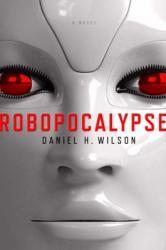
With the ever-increasing proliferation of “smart” technology throughout our society, the thought of a robot uprising remains fixed in the back of our minds. Since the introduction of the concept of robots decades ago, humans have feared their uprising to usurp us as the dominant sentient beings on our planet. Now, as we rely on our computers, smartphones, and connected devices to help run our lives, the threat of a full-on apocalypse resulting from their sentience seems more possible than ever.
Author Daniel H. Wilson has certainly done his research on the “what if” scenario of a robot apocalypse (or the titular Robopocalypse, if you will). He manages to build the progression of a robot-themed doomsday scenario from the machines we know and use today. Many of the machines’ decisions and strategic moves mostly make sense. That being said, I did have a few issues with the book and its structure. First off, the format of the book was remarkably similar to its zombie predecessor, World War Z. Secondly, the fact that it’s told through only a handful of characters helps to tie each piece together, but the fact that these characters are all connected to each other makes it less believable.
When it came right down to it, I had trouble connecting with these characters. In the earlier sections, it was a little easier to understand what was happening, but once the landscape of the robot war changed into one where the robots were winning; it was hard to grasp what was going on in a global sense. As it is, Robopocalypse is essentially a series of short stories with some familiar characters tying it together.
A semi-realistic look at a potential robot uprising with an already-used apocalyptic narrative format, I give Robopocalypse 3.0 stars out of 5.
For more reviews of books and movies like this, please visit www.benjamin-m-weilert.com
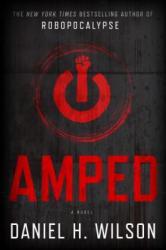
Having read Where’s My Jetpack? and Robopocalypse from Daniel H. Wilson, I had some high hopes for this book. Clearly, Wilson has a depth of knowledge about current and upcoming technologies that allows him to write succinctly both non-fiction and fiction. He can fuse the science with either humor or action and maintain an accurate sense of it without having the details bog down the plot. In Amped, Wilson explores a world where humans use technology to assist their bodies, either to overcome a disability or to overcome their humanity.
Unlike Robopocalypse, which was primarily a collection of intertwined vignettes, Amped follows a single individual through the effects of a fear-filled society charged by an inferiority complex. While the main thrust of the plot is about mental augmentation, there are mentions of other exciting technologies, including self-driving trucks and mechanical exoskeletons. Overwhelmingly, though, the brain-altering technology is the focus, as it hurtles the United States into two camps: ordinary people (aka “Reggies”) and “amps.” It was interesting to see how quickly discrimination came about in light of a clear delineation between humans and modified humans.
Even if the plot was a little hard to follow at times (perhaps due to me listening to it on an audiobook), the capabilities of the mental augmentation certainly felt realistic and plausible. While these embedded chips could solve many brain-related problems, the main point Wilson gets across is, “where does it end?” If we wipe out handicaps, can we also enhance ordinary people to super-human status? There’s certainly an interesting moral conundrum here, and I hope this fictionalized account will get people thinking about the answers before this reality is soon upon us.
Another great book warning about the potentials of future technology, I give Amped 4.0 stars out of 5.
For more reviews of books and movies like this, please visit www.benjamin-m-weilert.com
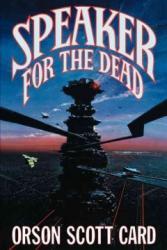
In this sequel to Ender’s Game, Orson Scott Card continues to provide a smartly-written plot that causes the reader to think about death in a whole new way. While the first book in the series gave some thought-provoking insights into war, simulation and the dangers of following orders, Speaker for the Dead examines cultural differences, religion, and the humanity of individuals who acted like monsters during their lives. Instead of moving on from the life of a deplorable person, Card manages to show the reader that a person’s life is made up of all its truths: the bad included with the good.
While Ender Wiggin seemed a little young in Ender’s Game, by Speaker for the Dead he’s aged into a wiser and much more complex character. His experiences in the first book helped to set him up as the universe’s devil and savior, a unique attribute set for a very cerebral character. I did appreciate how the physics of interstellar travel were used as limitations and constraints to make the situation of Ender’s age and experience much more believable. Of course, now that I’ve read the sequel to Ender’s Game, I’m not sure if the sub-plot with his siblings was nearly as important as I thought it would have been, thus making its omission from the movie a sensible choice.
What’s most intriguing about this science fiction adventure is how little science fiction is in it. Sure, there’s light-speed travel, alien creatures, and sentient computers, but when it comes down to it, the story is essentially a detective mystery solved by Ender Wiggin. Perhaps the sci-fi framework helped to create the ideal metaphor for understanding a culture different from our own, but these sci-fi elements could have easily been cut out, and a profound plot would have remained.
Another thought-provoking story in Ender Wiggin’s saga, I give Speaker for the Dead 4.5 stars out of 5.
For more reviews of books and movies like this, please visit
www.benjamin-m-weilert.com
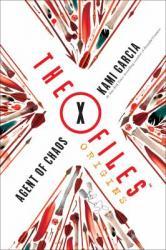
When Fox Mulder was just a kid, his little sister was kidnapped while he was babysitting her. That event has haunted him and his family ever since. So, when children start to go missing and then turn up dead from what appears to be a ritualistic serial killer, Mulder knows that he has to do something.
While I like the X-files, I'm certainly not the world's greatest fan - I've probably seen around 1/2 of the episodes, and I haven't watched the reboot. However, this book jumped out at me as I was perusing the stacks, and I'm glad it did. In fact, if you are just a fan of mysteries and/or the paranormal, this book will totally meet your needs. You can go into this without knowing anything about Mulder and the TV show, and you'll still have a great reading experience. If you are an avid fan of the show, there are several "easter eggs", cameos and cute references throughout the book (the smoking man shows up in the first chapter!). Also, it's got some entertaining historical fiction elements as the book is set in 1979, and that is very much reflected in the music and technology.
Garcia does a great job with the character development. Mulder quickly teams up with two other "genuis" types, and this book could've quickly devolved into some variation of "three teen geniuses solve a crime caper" a la a number of middle grade/YA books out there, but Garcia fleshed the characters out to the point that this pitfall was, for the most part, avoided. Mulder is, understandably, obsessed with finding his sister, and his parents are separated. His best friend, Gimble (a D&D name), has a father who is so enmeshed into conspiracy theories that he's been fired from the Air Force (he may or may not be an influence to young Mulder). His other best friend, also a love interest, was not as well developed, she was easily the weakest character, and I could've done without her and the romance. The story itself was a well done serial killer mystery, though the end felt a little abrupt with a ton of loose strings. The mystery is only mostly resolved, so I'm assuming there will be a sequel.
Anyone looking for a decent mystery with good characters, look no further. The X-files stuff is just icing on what is an already pretty tasty cake. I wanted to believe (I couldn't help myself), and this book didn't let me down. 3.5 stars.
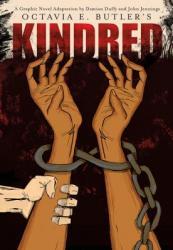
Octavia Butler's Kindred broke so much ground both as a flawless time travel novel and visceral retelling of the slave experience. As an African-American author writing science fiction, her body of work changed the field while winning its top honors -- the Nebula and Hugo awards -- and the author herself was awarded a MacArthur genius grant. This graphic novel is an excellent introduction to her work, and is highly recommended for YA and adult readers alike.
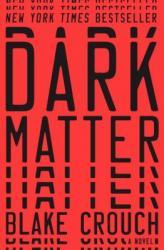
Jason Dessen is a physics professor who lives with his wife and son in Chicago. One night as he is walking home, he is abducted by a man in a geisha mask, made to drive to an abandoned building on the outskirts of town, and drugged. He regains consciousness surrounded by strangers who say they’ve been anxiously awaiting his return.
The title itself is a bit of a spoiler for what it takes Jason the first 100 pages to figure out, which is an unrealistically long time, as he is purportedly a “brilliant experimental physicist.” The narrative is tainted with passive misogyny as well, and the whopping total of two female characters are barely characters at all, and the author makes it quite clear how easily disposable either of them are. Once Jason’s situation becomes clearer, the description of the book's technology is both imaginative and logical (really the only part of the book I enjoyed). Following this plot point, the squishy-brained version of Jason whom we have no option but to see as the protagonist makes stupid decisions as overgenerously as Peter Jackson makes Hobbit films.
The story Crouch attempts to tell has literally limitless potential, yet he explores, well… not very much of it. The strongest characters fail to live up to even their basic outlines, and overall the book falls face-first into disappointment and unintentional humor. It’s a science-fiction story written in the style of a supernatural drama. Crouch should not have strayed so far from Wayward Pines.
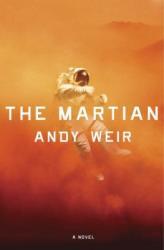
The Martian tells a tale of a man named Mark Watney who is abandoned on Mars. Watney was one of the first people to walk on Mars in the Ares III spacecraft. After a dust storm nearly kills Watney and leaves his crew members no choice but to evacuate the planet, Mark is left all alone on an unknown planet with no contact to the Earth world. With his humorous personality, will Watney survive the harsh conditions that Mars has to offer?
This book is absolutely incredible. Completely accurate facts about Mars, humor, and all around just amazing to read. The Martian is definitely one of my favorite reads.
Reviewer grade: 8
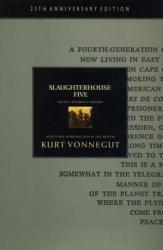
"So it goes..."
You may be thinking that based on the title it is the fifth book in a series of horror novels, but I assure you that it is not. Slaughterhouse-Five is a very thought provoking and poignant anti-war novel that has elements of science fiction, including 4th dimensional time travel and aliens. It’s a nonlinear story that follows a man named Billy Pilgrim as he travels throughout different moments in his life, weaving back and forth through differing time periods. He travels from his time as a chaplain’s assistant in World War II to his normal life with his wife and children to being an exhibit in an alien zoo on the planet Tralfamadore.
By becoming “unstuck in time”, as Billy puts it, he is able to relive these moments in his life and reflect upon them more deeply. This book is one of the best representations of 4th dimensional time travel that I've come across, and if you ever struggle to grasp the concept of time as the 4th dimension, as I do from time to time, then this book will certainly help create a better understanding of it. The book centers around Billy Pilgrim’s experiences during the war and all of the atrocities that he has seen, culminating at the end with the Bombing of Dresden, a moment which influences the rest of his life.
By being told out of chronological order, the structure of the book drives the importance and impact of the moment rather than just describing what happens next and it creates a sort of puzzle that the reader must put together. It is full of satire, wit, and black humor that is vintage Vonnegut and is one of the strangest meditations on war and humanity. If you want an extremely thoughtful book that challenges your perspective, then I highly recommend Slaughterhouse-Five by Kurt Vonnegut.
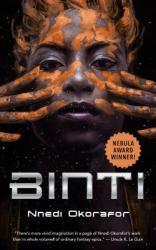
This was a fun little sci-fi novella. Binti is about a Himba girl from Earth -- the eponymous Binti -- who is accepted into a super-prestigious university and becomes the first Himba to go off-planet to attend college. There's a lot of prejudice against Himba by the Khoush on Earth, so Binti is nervous about traveling outside of her homeland, but when she gets on a shuttle with fellow students they find they have their love of science and astronomy in common, and she begins to feel optimistic about attending Oomza University. However, part-way into the journey the Meduse, a type of alien in a long war against the Khoush, attack the ship at dinnertime and kill all the students -- except for Binti. She’s not exactly sure why, but it seems to have something to do with a mysterious artifact she found in the desert that she keeps as a good-luck charm. Binti hides in her room, but she fears it will only be a matter of time until the Meduse kill her; she might not be Khoush, but she's a human on a Khoush ship, and that's enough. What seemed like the beginning of an exciting new life now is going to end just days after her departure.
I listened to Binti as an audiobook, and the narrator did a wonderful job with the story. I enjoyed Binti’s perspective and was drawn in by the back-story of their world -- the astrolabe technology everyone seems to use, Binti’s skill as a Harmonizer, living space-ships, and many other intriguing details. It’s extremely short -- just 90 pages -- and at the end I definitely wanted more information about the world and its people and technology. On the one hand, it’s good that Okorafor made me care enough to be interested in hearing more, but the tradeoff was that book felt a bit rushed/cramped at times. There are novellas that work perfectly in that form and are paced so well that they’re as rich and complete as a full-length novels, but this one didn’t quite meet those standards. This is intended to be the first book in a series, so I'm cutting it some slack for that reason, but it still didn't quite work on its own. The message was strong, but there were plot points I would have loved to see explored in more depth, relationships I wish had been better fleshed out, and some finer details of the setting that I wish Okorafor could have delved into to make for a more satisfactory ending. I still enjoyed the story for what it was, and I'll be looking out for the next entry in the series, but it fell a bit short of what I wanted. That being said, it's a creative story with a very cool setting, and I would certainly recommend Binti to fellow sci-fi fans.
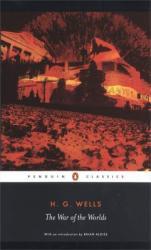
At only a smidgen under two-hundred pages, this book appeared to be a concise and quick read. Surprisingly, my experience was quite the opposite. The War of The Worlds presents a typical scenario that many novels have sadly claimed. The initial third is gripping and chocked full of descriptors and entertainment; the second third is nearly pointless to the main plot; the concluding third wraps the story up, leaving enough aspects unresolved for the imagination to expand upon, but doesn't carry on the initial third's promise. Thus, leaving the reader confused and with a feeling of wasted time.
Initial Third:
After reading the beginning chapters a sense of urgency becomes the overlying theme. Peril soon engulfs the novel's setting as its characters realize the grave situation. The Author takes his time here by writing pages of description to meticulously set the scene. The story progresses to a small climax at the end of this third, which casts a shadow of high expectation on the other two thirds. This initial third is a marvel of a opener that brings honor to the class of classic English-literature.
Second Third:
If paper could speak to its reader it'd ask that they'd grip their new-found excitement and trudge through the muck. The majority of this third's viewpoint comes from that of a flat secondary-character with little importance to the story. This characters presence only delayed the objectives that the first chapter created. Their travels were hectic; slightly smile inducing at times. Taking this character shift seriously was difficult as the pages grew thinner and crucial answers were yet to be disclosed. The author even goes as far as giving a figurative apology for sidetracking the reader at this third's close; H. G. Wells' canny sense of humor makes an unexpected appearance here.
Concluding Third:
After hope for the story as-a-whole was drained, Wells restored the glorious successes of the initial third, but not fully. Excitement and intensity were brought back as the conclusion drew nearer. The story abruptly shifted to the round, main-character, again; swapping character who're in different settings is usually abrupt, so this isn't a true issue. This character goes on to see the conclusion, which wraps up most of the events and questions that the previous content created.
My Take:
I didn't find this novel to be terrible or great. It proved to me that it's a mediocre work glossed with wild literary technique and vocabulary. Wells' persistence use of over description dimmed the natural flow and appeal of his writing. There's little reason to use half a page or more to describe minute details. It would have been better if he spent the time to detail the larger picture, rather than tiny scenes. Character development was superb at first, but fell flat due to the second third's character shift. If the second third was omitted in its entirety and, then rewritten without the secondary-character's perspective the novel would be vastly improved. Wells wasn't an illiterate fellow with corn for brains. His derailing of the story added multiple perspectives and was most likely an attempt to add another dynamic. The incessant over-descripting showcased his incredible vocabulary while portraying him as an over confident writer. Paying closer attention to the plot and character development will lead to a better story than any amount of impressive vocabulary ever could. It's clear that H. G. Wells is a gifted and skilled writer, but this certainly isn't a jewel.
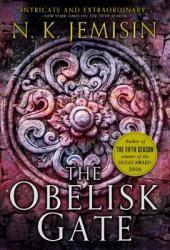
I previously reviewed the first book in this series, The Fifth Season (http://ppld.org/book-reviews/fifth-season). This was a strong second entry, and on reflection I ended up liking it even more than the original book. The plot is far more linear than in The Fifth Season, but there are still unexpected twists and turns, and for me the characters really came into their own here. You will see some old, familiar faces along with a number of new additions to the cast from regions of the world we hadn't previously been exposed to. There was one character in particular whose story-line took a surprising turn that caused me to do a complete 180 on how I saw them. For me, it hit all the right notes: deeper world-building, strong characterization, and a complex plot that held up to closer scrutiny.
If you haven't finished the first book, the next part of this review will include minor spoilers. The Obelisk Gate picks up where The Fifth Season started, with Essun discovering her murdered son just as the Season hits. While the previous book then went back and forth in time to explore how she had arrived at that point, this one moves us into the future as she sets off in pursuit of her husband (Jija) and daughter (Nassun), hoping to rescue Nassun before she meets the same fate as her brother. The chapters alternate between Damaya/Syenite/Essun's journey and her daughter's, with the odd interlude featuring someone else. The narration is still in its distinctive second person format, but in this book we finally learn who the speaker is. In my opinion, Jemisin answered just enough questions from the first book while still leaving mysteries for the finale, and I can't wait for the third and final entry in the series (projected release in 2017). Highly recommended to lovers of fantasy!
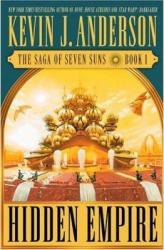
Hidden Empire is the start to the "Saga of the Seven Suns" series by Kevin J. Anderson, an author of dozens of Bestselling and award-winning sci-fi books. If you haven't heard of Kevin J. Anderson, it's probably because a great deal of his writing is done for other pre-existing franchise licenses (Star Wars, Dune, movie novelizations, etc...) where the author’s name tends to less noticed. Having had no previous familiarity with the author myself, I took a gamble on this one when I passed by his publisher’s booth at Denver Comic Con, and had a bit of money still burning in my pocket. I've been pleasantly surprised and now that I’m 3 books in, I think the series is holding up fantastically.
Hidden Empire tells the story of human ingenuity turned reckless by greed. When the Terran Hanseatic League ignites a gas giant into the first man-made star, they awaken a slumbering threat, and inadvertently start a war that threatens to destroy all of human civilization. The enemy is ruthless and unimaginably powerful, and worse yet, the various factions of humanity are divided by their own conflicts and prejudices.
Saga of the Seven Suns is a classic space opera of galactic proportions with a close focus on its characters. It skips the focus on justifying realistic technology that is common in "hard" sci-fi, and though the plot revolves around a war, it is not "military" sci-fi either, in that it's less about space marines and more about xeno-archaeologists and politicians. This is a people-centric story all the way, with the spotlight on the struggles of the individual characters as they each try to navigate the webs of intrigue, conflicting cultural values, and ancient secrets that surround them. Think the grand scale of Star Wars mixed with the plot style of Game of Thrones, featuring a varied cast of Point-of-View characters whose stories conflict, intersect, and illustrate the plot from different perspectives.
Speaking of Game of Thrones, did I mention that this 7 book series has already been completed and fully published? You get all the thrill of binge-reading a sweeping saga that will keep you entertained for months, without have to wait around for 5 years for the resolution to that torturous cliffhanger! There's also a handy glossary at the back of the book to help you keep track of the different people involved in this intricate story.
Note: This book is not to be confused with Hidden Empire by Orson Scott Card. While Card's name is likely more recognizable, Anderson's book was published 2 years prior.
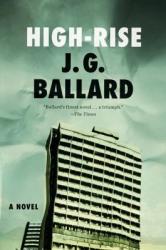
High-Rise (1975) begins with one of the most memorable first lines I’ve ever read, "Later, as he sat on his balcony eating the dog, Dr. Robert Laing reflected on the unusual events that had taken place within this huge apartment building during the previous three months". Laing is a new tenant in a futuristic high rise apartment building on the outskirts of London. The high rise is a microcosm containing restaurants, playgrounds, a swimming pool, and even its own supermarket. There is social order: the wealthiest tenants occupy the building's upper floors with the best views, while the middle-class tenants reside in the lower half of the building, constantly at the mercy of falling champagne bottles from the upper floors. Before long, tensions arise between the tenants of the upper and lower floors. Alternating between Laing and another tenant, Richard Wilder, we witness first-hand the deterioration of ethics and social order within the high rise. Elevators are commandeered, rooms are barricaded, alliances are formed, and blood is shed. Little by little, the layers of human behavior are peeled back, exposing a terrifyingly animalistic core at the heart of the high rise tenants.
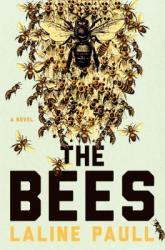
My first thought when this book was recommended to me was, “Bees? Is that metaphor? What do the bees stand for?” NOPE. This book is literally about bees. But not in a nonfiction, documentary kind of way. Here we have a novel in which we discover the world of bees personified.
Enter our main character, Flora 717. She was born the lowest of the low: the sanitation worker bee. Ugly, underappreciated, but unlike her fellow floras, she can speak. One of the higher levels of bees, a priestess to the queen, immediately takes notice of her oddities and experiments with her in roles not typical to a flora.
Flora 717 finds herself in almost every aspect of bee life at some point of her journey through the hive, uncovering secrets as she learns, grows, experiences the most profound loss, and transcends to the highest joys. The ordinary life of these black and yellow creatures we see and often fear is re-imagined into a relatable tale that pierces the veil between bees and humans. Though humans play very little role in the book, the bees exhibit many characteristics of humanity.
The tone of this book can be a bit dark at times with graphic imagery, but I highly recommend it.
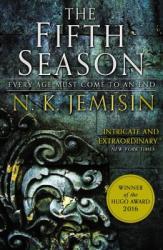
I loved this book. I've been looking for a new fantasy series for a long time now, but I haven't come across anything recently that's caught my eye. I almost gave up on The Fifth Season too, in part because the narration is in second person, which I found jarring at first, and in part because Jemisin drops you in the middle of the action with little explanation and no hand-holding. It took me a few chapters to get into the story and figure out what was going on, but I'm glad I stuck it out because the plot and characters ended up being great. Despite what I just said, I think it's almost better to go into this blind, but I'll try to describe it without giving too much away.
The continent our characters live on, "The Stillness," is a post-apocalyptic hellscape. There is near-constant seismic activity that triggers a new catastrophe (called a "Fifth Season") every few centuries -- sometimes in the form of massive crop-failures, sometimes in the form of volcanic eruptions, sometimes massive earthquakes that destroy whole regions (she includes a helpful appendix of these disasters if you're curious). In this world, there is a group of people known as orogenes (or more derogatorily as "roggas") who have some degree of control over seismic activity -- they can "sess" earthquakes, and, with training, prevent them from being too destructive. But they're also powerful, extremely dangerous, and widely despised -- many people kill their own children when they discover what they are, and it's often a race against time to see if a Guardian (their mysterious and sinister keepers) can arrive to collect the child before the family or the community has killed them. The plot isn't chronological; it moves around from chapter to chapter in order to tell three stories at three points in time: 20-odd years ago, when a young girl is taken to the capital to be trained as an orogene; some 10 years after that when a mid-level orogene goes off on a mission with her senior to investigate a disturbance in a coastal community; and "now," in the immediate aftermath of the latest apocalypse, when we follow a woman who is struggling to cope with her son's murder just as the quake hits.
I'm not going to say that it's an entirely original idea, but I think the execution was solid and I loved the dialogue and cast of characters. There's no lack of action, but Jemisin also takes the time to dig into her characters' emotional lives, and after a while the use of "you" starts to fade into the background. There's a strong focus on discrimination, both in terms of how orogenes are viewed in society and in terms of the treatment of subordinate nations and peoples by the Sanzed Empire that has conquered the continent. A lot of fantasy is set in pseudo-Europe (and often just pseudo-England), so it was refreshing to read something more diverse, and there's a wide variety of representation in terms of race, gender, and sexuality throughout. I would give this 4.5/5 stars if that were possible, but since it isn't I've left it at 4. It wasn't perfect, but it was a very strong start to the series, and I look forward to starting the second book, The Obelisk Gate, which just released this September. I would definitely recommend this to fans of fantasy.
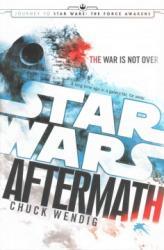
This was a great book. I would strongly recommend it to anyone who is curious about what happens after star wars episode VI and VII. It does a great job about filling in the gap between those two episodes. It is about a small diverse group of people: a lady named Norra, her son, a bounty hunter and an imperial defector who take the fight right to the empire and attempt to stop it's reign once and for all. The empire has been severely weakened when the rebels blew up the death star for the second time and the imperials are having a summit meeting to gather together and regroup their forces and attempt to map out the future for the empire. Meanwhile the rebels have renamed their selves the New Republic and are attempting to bring democracy back to the galaxy but still have the problem of the empire's remaining forces. Even though the death star has been destroyed once and for all, the empire still has a few remaining star destroyers and a super star destroyer that are challenges for the rebels. Overall, this was a great book and it is defiantly a must read for any Star Wars fan.
Reviewer Grade: 7
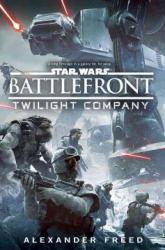
I thought that this was a great book. It had a very exhilarating story line that made the book hard to put down. The main character's name is Namir and he is a soldier for the rebel alliance. Namir is in the sixty first mobile infantry better known as twilight company. This book is full of fight scenes so if you like books with a lot of action then this is a book for you.
One of the characters is actually an imperial stormtrooper who you read about sometimes so it is fun to get to see the story from the other side's point of view. One of the characters that works for the rebels is an imperial defector named Everi Chalis who gives information to twilight company about the empire's tactics. However the question remains, is she a double agent and also giving the empire information about the rebels? Overall, one reason why it is fun to read this book is because it focuses on the average soldiers in he rebel alliance as opposed to the movies which focus on high ranking people such as Princess Leia and Luke Skywalker. All in all, this is a must read for any star wars fan.
Reviewer Grade: 7
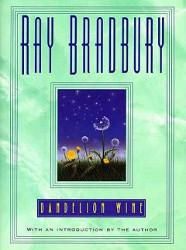
Dandelion Wine is a book about an entire town in Green Town, Illinois. It follows many of the different citizens, but focuses on the character development of Douglas Spalding. The book starts with him and his Grandfather making dandelion wine, as a tradition as the beginning of summer. I am reading this for school, and at first, I wasn't thrilled with it. It has no plot, but instead makes up for it with the mini stories throughout the book. Every chapter is new, and about a completely different citizen of Green Town. I was shocked with how the book had many different themes, most of them dealing with love and death, but most of all grief. Each chapter changed my perspective of the world just a little bit, so by the end I felt almost new. I was able to relate to Doug very much, along with other characters. This book hits the hard questions, and views the tragedies of life through only a boy's eyes. I found myself gasping at parts, not because of plot twists, but because of the complete shock of innocence vs tragedy. It made me view life in a completely different way. This has defiantly made my top 5, maybe even 3, book list.
Reviewer Grade: 10
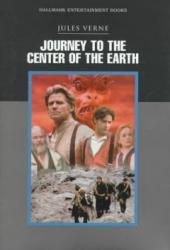
Journey To The Center Of The Earth is a wonderful book. In it, the main characters Axel and his uncle find a mysterious message in a book saying that if you descend into the crater of Sneffels before the kalends of July, you will find a passage to the center of the earth. Putting aside all hesitations, they begin their journey and explore the depths of the earth.
Will their journey succeed or will they die in vain? Find out by reading this book. You will not be disappointed! The only bad part is that it's a bit unrealistic. Overall, this is a great book.
Reviewer Grade: 8
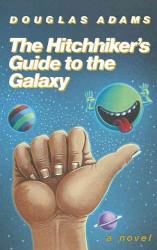
When Ford Prefect, an undercover alien that got stuck on Earth, realized that Earth would soon be blown into smithereens, he and his human friend, Arthur Dent, escape and embark on an adventure through space. The Hitchhiker's Guide to the Galaxy parodies other sci-fi novels, which is enjoyable for those who are experienced with that particular genre. This novel is very light-hearted, simple, and it doesn't really get too serious anywhere. The humor is random and ridiculous (in a good way), and it really was what made the book. All of the characters had strong and eccentric personalities with their own little quirks that make them special; they were all very engaging. It's a pretty good classic (that's why I chose to read it in the first place), it's very quotable (and who doesn't like quotes?), and fast-paced. It might seem a little immature to a select few, but the amount of people who like it heavily outweigh the ones who don't.
Reviewer Grade: 8



 Ruth Holley Library will be temporarily closed for approximately one week starting Mon., Dec. 2 to complete roof repairs.
Ruth Holley Library will be temporarily closed for approximately one week starting Mon., Dec. 2 to complete roof repairs.